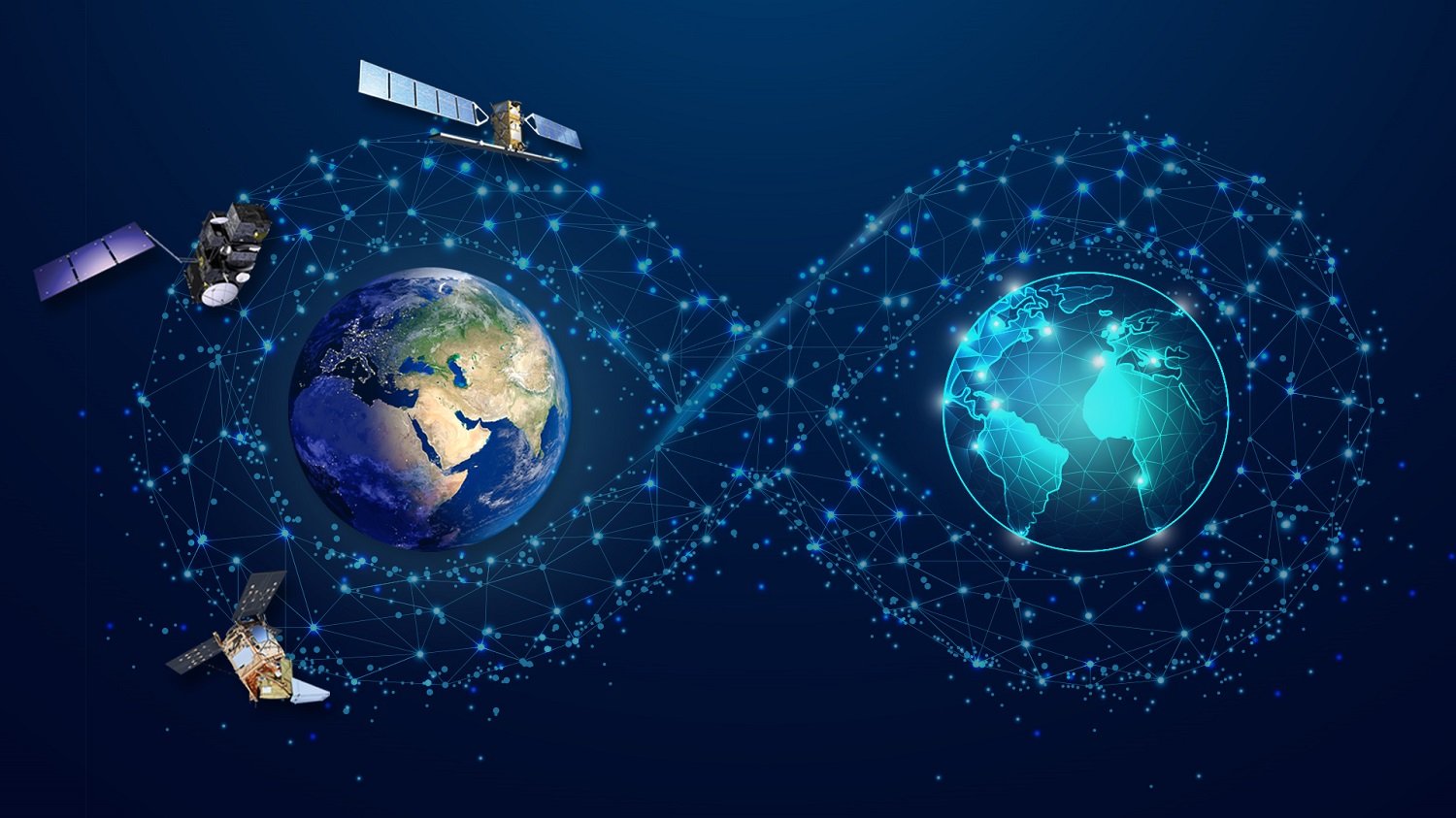Thales Alenia Space Signs Contract with ESA to Develop an Agricultural Digital Twin Component for Sustainable, Resilient Agriculture
Destination Earth © ESA
Thales Alenia Space, the joint venture between Thales (67%) and Leonardo (33%), has signed a contract with the European Space Agency (ESA) to lead the SaveCrops4EU project. Part of ESA's Digital Twin Earth programme, this pre-operational digital twin component will enhance agriculture’s resilience to climate change and support agricultural resource management.
The SaveCrops4EU digital twin component will be structured around three major scientific pillars:
Advanced monitoring using satellite data and agronomic indicators to enable real-time analysis of crop conditions.
Yield forecasting based on a hybrid modeling approach combining Earth observation data with crop growth models to estimate production volumes at regional level.
Scenario testing incorporating various abiotic stresses (such as drought and heat) and management strategies (including irrigation and fertilization) through a range of simulations.
Thales Alenia Space will lead the integration and overall architectural design of the Digital Twin Component, combining the various scientific models with the necessary Earth observation data and ensuring that the output data can be effectively used by end-users. A modular approach was chosen to support a wide range of use cases in which the Digital Twin Component could provide key information.
Thanks to an innovative combination of Earth system modeling, diverse data sources, and cutting-edge technologies, Destination Earth and its digital twins for example allow a wide range of users to explore the effects of climate change on the various components of the Earth system and assess possible adaptation and mitigation strategies. Several structural institutional initiatives in this area exist in Europe like Destination Earth (DestinE) funded by the European Commission or ESA Digital Twin Earth (DTE), funded by a large number of ESA Member States. The ultimate goal of these initiatives is to create a digital model of the Earth to monitor the effects of natural and human activity on our planet, anticipate extreme events, optimize resource use while minimizing environmental impact, and adapt climate policies accordingly.
As an ESA programme, DTE is in full synergy with DestinE and ensures that the pre-operational digital twins developed could transition into a larger operational system like DestinE, thus maximising their impact.
Real-world use cases for validation
To ensure the relevance of technological developments, SaveCrops4EU will be tested through four key use cases in Belgium, Germany, Hungary, and Spain. These real-world validation cases will assess the accuracy of the models, their ability to anticipate weather- and climate-induced stress on agriculture, and their impact on local decisions by stakeholders in the agricultural sector.
SaveCrops4EU leverages existing solutions from the Destination Earth Platform and aims to achieve maximum interoperability with other digital twin components. The modular approach will ensure future scalability by enabling the easy integration of new models and addition of crop types. By the end of 2026, the project will provide a pre-operational solution supporting economically and environmentally sustainable crop management in Europe.
“For several years, Thales Alenia Space has been at the forefront of innovation, developing enhanced digital solutions for Earth observation to enhance decision-making and support responsible climate policies. We are proud that ESA renewed its trust in our company with SaveCrops4EU, leveraging the legacy and experience we gained in developing the flood prediction digital twin in 2023,” said Étienne Barritault, Managing Director of Thales Alenia Space in Luxembourg.
A European consortium of excellence
To lead the SaveCrops4EU project, Thales Alenia Space has formed a European consortium, with each partner contributing specialized expertise in complementary fields. The consortium brings together the Luxembourg Institute of Science and Technology, the scientific lead, and the University of Valencia as remote sensing experts. It also includes Forschungszentrum Jülich, specialists in bioscience and geoscience simulation, the Walloon Agricultural Research Center, and CropOM, experts in agriculture.
